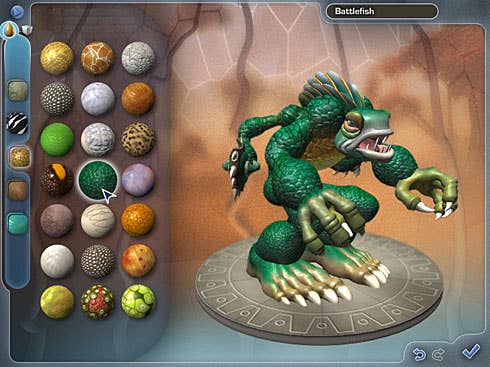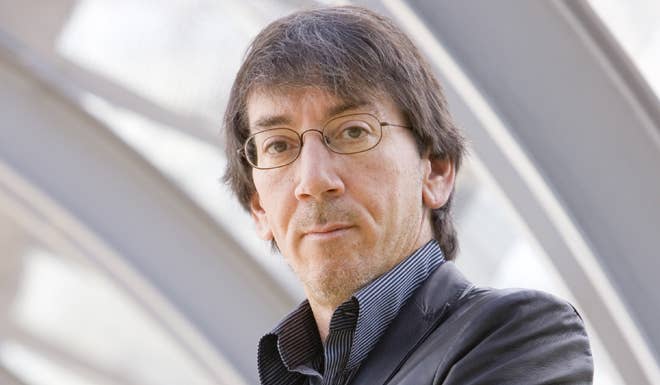Will Wright: "Console guys are running scared"
The legendary designer shares some thoughts on game design and the industry
GamesIndustry International caught up with legendary game designer Will Wright to find out his reactions to some of the latest news in the gaming industry, and perhaps some hints of what he's working on. He also shared some thoughts on design with us.
I think that is going to be the future. People have so many devices they carry around. They have their tablets, their smartphones, their PC at home, their Xbox - I think that having a game that's accessible on all these devices at any time is going to be much more sticky than something you have to go home and play on your PC or only play on your iPhone. I think in that general sense, it's going to hit a much broader group of players than dedicated games.
Yes. Each platform has a totally different set of features and advantages. You can do a game like Tetris that's the same on everything, but it's not going to be nearly as interesting if you can go deeper on the platforms, because then platforms will have a much deeper experience. Unfortunately that adds a lot of complexity to the game design. We'll probably see things that launch one platform at a time and expand the experience to other platforms.
"I think that [cloud gaming] is going to be the future"
Will Wright
It adds more opportunities, too. You have a lot of people who are able to do a lot with small teams and low costs; of course there's a lot of noise in the market. I think in some sense it's kind of equalized. It used to be big companies doing triple-A titles on consoles is where all the money is. It's shaken things up quite a bit with all these platforms. In some sense all the little mammals - small developers, new companies - have an opportunity right now to fill new niches that are expanding rapidly. They might be small opportunities now, but they very well could be huge opportunities in the not-too-distant future.
I think on the plus side there's very little risk in trying something new, as opposed to spending 40 bucks on a game and maybe you'll like it and maybe you won't. I think people were a lot more risk-averse under the old model, the shrink-wrap model. It has its pluses and minuses; it is bringing in a much wider group of players than we had before. The demographics are expanding, which long-term I think has to help.

I think publishers are much more risk-averse to spending twenty or thirty million dollars on a title. The only people who could really play that game were giant publishers, and they'd be rolling the dice. They'd do 5 titles a year, and all they had to do was get one hit and it paid off all the failures. It is going to be more of a Zynga-type environment where people start small and try to grow it up. It encourages experimentation. I think before the only thing people were willing to bet on were sequels; that was really the only predictable genre. Now the fact that you can do a game for an extremely low cost, put it out there and see if it gets any traction is going to encourage more diversity.
I think I can go for something that's more ambitious still, but I would do it more incrementally. You don't necessarily have to do two years of development and publish this giant thing when you can actually do little experiments. Maybe they come together and become part of a larger experience. That's the way I'm thinking about it. At this stage in my career I don't want to do some little app; I want to do something different and risk-taking. But it feels a little less risky because of the fact that I can approach it more incrementally.
"I think there's still a lot of room for someone with an artistic vision that's not going to survive focus groups"
Will Wright
I like that idea as well. I think that more and more we can learn from our audience almost while we're still in development. As a designer I find that to be kind of attractive, because so frequently you come out with something and maybe it's a hit and maybe it's not. But even if it's a hit, it turns out that all the things you thought were really cool and you spent all your time on aren't the things the players love and talk about. It would be good to get a sense of that before you release a title, which features to double down on.
I think you should listen to the market. But a lot of times with a brand new experience, when you start describing it to people before they can experience it they'll say it sucks, or 'we've never seen anything like it so we can't really envision playing it in our head'. I think there's still a lot of room for someone with an artistic vision that's not going to survive focus groups, but if a person holds true to that vision you're going to end up with something that wouldn't exist otherwise. It's really like evolution - there are certain things that you can't easily evolve from this to that; you have to make a leap of faith. That's where I think there's still a lot of room for somebody with a strong artistic vision and the power to see it through.

I still approach those kind of things that, when you describe them to a person they don't make a lot of sense, but if I can get the experience up and running and they can experience it I'm reasonably confident they will understand what I was getting at.
Yeah, pretty much. (laughs)
No, I really didn't follow any of the news from E3; I've been too busy working on projects.
"I think all the console guys are running scared"
Will Wright
I think all the console guys are running scared. Not so much because of the hardware, but because of the business models, free-to-play and that kind of thing, have shifted underneath them.
Unfortunately not yet, we're still in stealth mode on it. But hopefully not too long before we can talk about it.
It's a multi-platform strategy, definitely. I don't want to be committed to any one platform - I want to be accessible on a variety of platforms.
Exactly.









